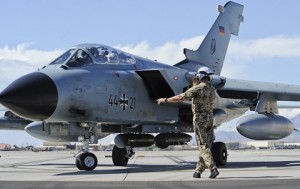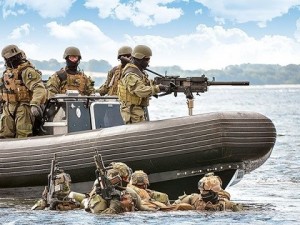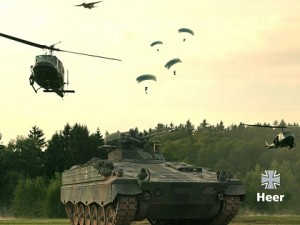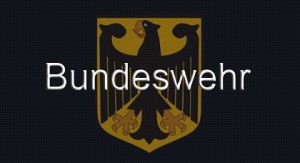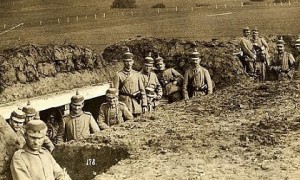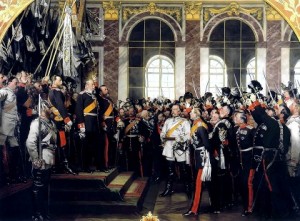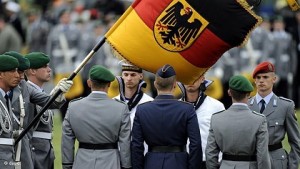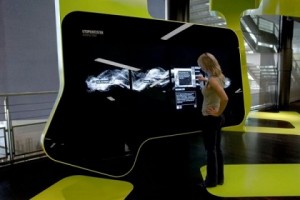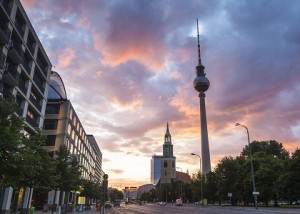The German Air Force (Luftwaffe) has faced dramatic changes in structure and strategic concepts as a result of the diminished threat in Central Europe and shrinking budgetary resources for modernized weapons systems. Prior to the demise of the Warsaw Pact, the German air force had as its primary mission the air defense of Central Europe in … [Read more...]
German Navy – Bundesmarine
The primary areas of operation of the German navy (Bundesmarine) in the event of war are the Baltic Sea and the North Sea. Until 1990 the navy's mission had been to block the Baltic approaches on behalf of NATO to prevent the deployment of the Soviet Baltic Fleet in the North Sea and the Atlantic Ocean. The German navy also contributed to … [Read more...]
German Army – Heer
In early 1995, the German army (Deutsches Heer), headquartered in Koblenz, had a personnel strength of appropriately 255,000, including 123,000 conscripts. German army was composed of two principal elements, the field army and the much smaller territorial army. Territorial army units were slated to be merged with the field army by the end of 1995. … [Read more...]
Creation of the Bundeswehr
In the summer of 1955, ten years after the Nazi surrender and the end of World War II, the West German Bundestag (lower house of parliament) voted to authorize the recruitment of volunteers for the initial formation of the Bundeswehr (Federal Armed Forces). Later in the year, a cadre of about 100 officers and NCOs were sworn in at a ceremony in … [Read more...]
The German Military in Two World Wars
Prussian-German excellence in military matters was an accepted fact of life, but in the twentieth century the excessive accent on militarism led to two disastrous world wars. Germany's insistence on building a fleet that could challenge Britain's naval domination underscored German bellicosity and pushed Britain toward alignment with France and … [Read more...]
Prussia’s Emergence as a Military Power
After the decline of the Holy Roman Empire, the Kingdom of Prussia eventually emerged as the dominant power in central Europe. Prussia had been colonized and Germanized during the thirteenth and fourteenth centuries by the Knights of the Teutonic Order, a military order of German monks that pushed back or overran the Slavs in the area. The knights … [Read more...]
National Security in Germany
The Federal armed forces (Bundeswehr) of the Federal Republic of Germany (FRG, or West Germany) came into being in 1955. Assigned a solely defensive role, the Bundeswehr at its creation constituted the largest component of the North Atlantic Treaty Organization (NATO) ground forces in Central Europe. Throughout the Cold War, the fighter aircraft … [Read more...]
The Mass Media in Germany
Until 1990 Germany was a divided country. The media system of the former GDR was highly centralized and worked under the control of the Communist Party. It disappeared during the process of unification, but patterns of media usage still differ between East and West. Today, the major media production centers are located in the “old” West, newspapers … [Read more...]
Radio and Television in Germany
Radio and television are administered in a decentralized fashion as prescribed in the Basic Law. The intent behind the pattern of regional decentralization is to prevent the exploitation of the media by a strong national government, as had happened under the Nazi dictatorship. Germany has two public broadcasting corporations. The first, ARD, was … [Read more...]
Newspapers in Germany
West Germany has always had highly developed mass media. The independence of the press and its freedom from censorship are guaranteed in Article 5 of the Basic Law. Conversely, the communist regime in East Germany tightly controlled the media. Despite government censorship, East Germans were voracious newspaper and magazine readers. More than three … [Read more...]
- « Previous Page
- 1
- …
- 6
- 7
- 8
- 9
- 10
- …
- 14
- Next Page »
